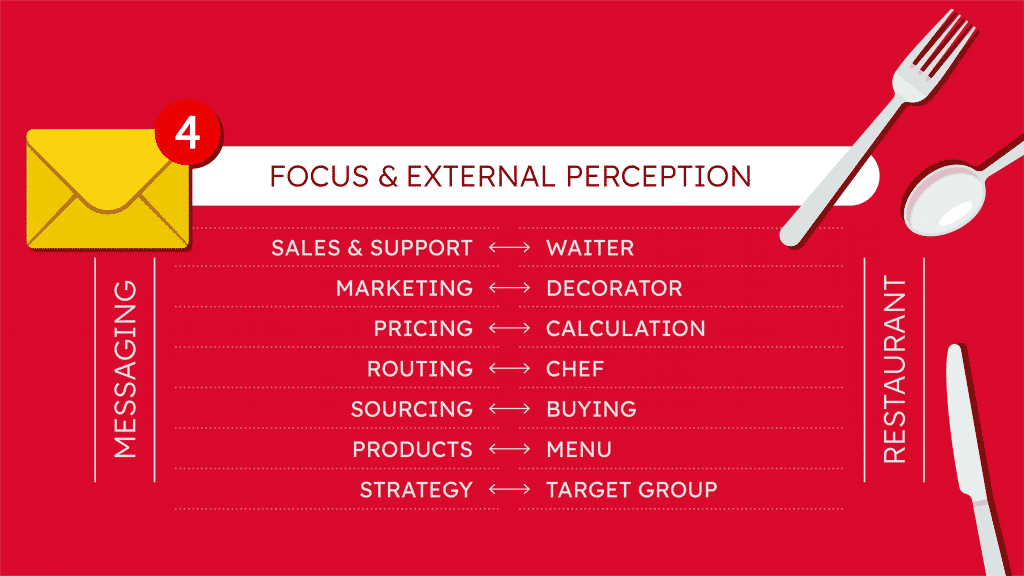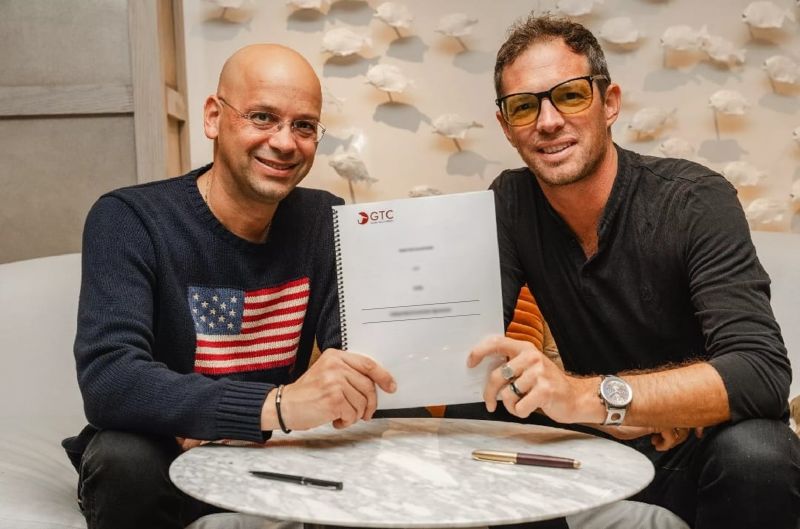At Global Telco Consult, we are lucky. As consultants, we have the unique advantage of being able to look behind the curtains of many different messaging firms across the value chain.
This gives us a certain clarity. We get the full picture. After many years, we can safely state that all messaging companies are different – not only in size but in culture, history, ambition, investment and more.
That said, we do notice common themes – and one that links all the businesses that are struggling is a haphazard approach to product.
In fact, these companies don’t really offer a ‘product’ at all. They give their customers a tech spec and a list of available regions. There’s no focus on how messages are delivered (direct or indirect), no guaranteed routing profile, no promise of quality.
When the ‘product’ is random like this, so is the performance. Customers might find a campaign that ran well in one country performs poorly when they repeat it in another. They might discover their routing profile suddenly changed after a few days.
As a result of these inconsistencies, customers of these companies tend to make their purchasing decisions purely on price, until they decide to buy elsewhere. It’s their only criteria – and we know that always leads to a race to the bottom.
To compound the problem, we find that messaging firms that operate like this are usually less efficient. Without a commodified and consistent approach to products, they need more people to run their services and manage their customers.
Combine low-margin prices and high internal costs, and you can see why these businesses struggle.
The remedy is pretty obvious. We have hinted at it already: eliminate the randomness, create products that do what they say, ensure a consistent approach whatever the region.
In fact, this process has a name: productisation. And whenever we discuss it with a client, we find it always triggers lively discussions.
A closer look at productisation
Needless to say, productisation is not a new term. It’s been used by business theorists for many years in many contexts.
Perhaps the easiest way to understand it in a wider context is to describe the problem it solves.
Take any high-end professional service – law for example – and you will have one obvious business model. The firms will usually provide specialist expertise to a big-spending corporate client base. They will modify their service for each customer, and it will be pretty lucrative.
But there’s a downside. How can these companies expand? If they want to double their revenue, they probably have to double their headcount.
So what’s the solution?
It is, of course, productisation. In other words, instead of creating a unique solution for each buyer, you create the same service – using the same process – for all of them.
Still not clear enough? Well, productisation was also a topic in a recent customer workshop and as an opener, we introduced the analogy of a restaurant.

Productisation on the menu?
Imagine you plan to open a restaurant, what should you think about? First, your potential customers. What type of potential customer do you want to attract? Then there’s your menu. Will you offer sushi? Haxe with knödel? Pizza? Fish and chips?
Next, you need to think about how and where you buy the ingredients, how to create that special taste and of course the interior and overall perception of your restaurant.
OK, you’ve made all these decisions and the restaurant is open. If your customers like the food and keep coming back, wouldn’t they expect the same dishes and the same experience every time?
If you have productisation, you can ensure they get this consistent experience.
Ok, let’s translate that into the messaging industry
In messaging, you also need to decide which customer segments and use cases you want to address.
This will involve some strategic thinking and will help you understand if you have a USP (unique selling point) or at least can address a segment of the market.
Once done, you can start to define your products. For each one, you will need to create guidelines for sourcing, supplier management and routing. You will also need to develop supportive information/materials so that your marketing and customer care teams all understand what they are working with and how to act in daily operations.
With all this in place, it won’t just be you that benefits. Your customers and suppliers will start to see you as a focused company that has a plan – and acts accordingly. They will choose your products based on quality and certainty, not just price.
Far better than the alternative: being seen as a vendor of random products topped with the occasional surprise.
Productisation – the spine that sets your business free
Of course, at GTC we know that ‘real’ business is rarely this straightforward. Some will say the idea of productisation is all fine until it comes up against actual sales targets and unexpected business events.
But this is thinking about the issue the wrong way. Productisation shouldn’t be: a product is a product and there shall be no deviations.
Quite the opposite. Productisation should be the spine of your business – a source of consistency that also includes the freedom to serve special ‘out of the ordinary’ demands when they arise.
Let’s go back to our restaurant analogy.
A lot of restaurants have a daily special, right? This is the place where they can offer what’s fresh on the market. They can experiment and innovate here, but still complement the dependable regular menu. Messaging firms can do the same.
Get productised now!
Are you already productised? There is a simple way to find out: just ask your sales team to share the customer-facing product sheet with you.
At the same time ask your routing colleagues about the parameters they use to make their decisions. Then ask your sourcing team what they currently hunt down or negotiate and why.
If you get swift and precise answers for them all, and these responses line up with each other and with what’s on your website – congratulations! You are productised.
If not, well, it’s a good excuse to start an internal conversation.
See it as an opportunity. A chance to really understand who you are, what makes you special and how you deliver that every day.
After all, if you don’t know this stuff, how can your clients ever know it?
Bottom line: if you don’t know who you are, what makes you special and how you deliver that every day – how can others know? There are many players on the market, get productised and stand out.
Global Telco Consult (GTC) is a trusted independent business messaging consultancy with deep domain knowledge in application-to-person (A2P) services. GTC provides tailor-made messaging strategies to enterprises, messaging service providers, operators and voice carriers. We have expertise in multiple messaging channels such as RCS, Viber, WhatsApp, Telegram and SMS for the wholesale and retail industry.
GTC supports its customers from market strategy through service launch, running the operations and supporting sales and procurement. The company started in 2016 with a mission to guide operators and telcos to embrace new and exciting opportunities and make the most out of business messaging. For more information or industry insights, browse through our blog page or follow us on LinkedIn.



